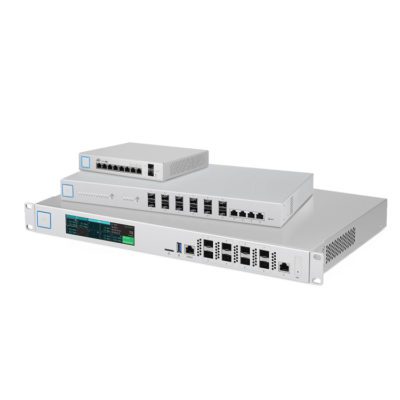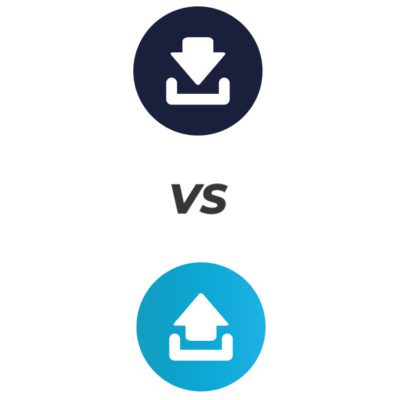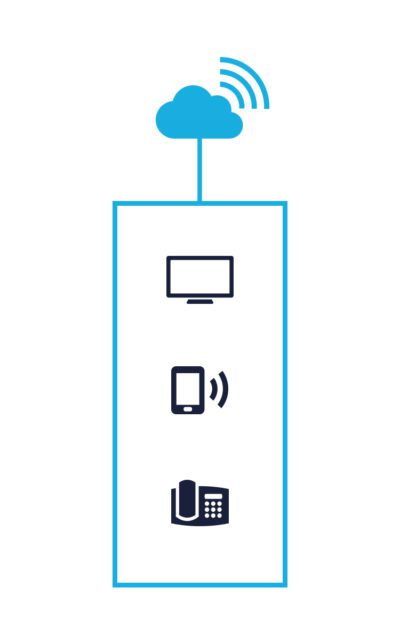We offer a wide range of connectivity solutions to suit suit every need and budget.
We help you figure out which connectivity solution is right your business, without baffling you with technical jargon.

Infinitel are dedicated to providing the best connectivity solutions for your business, whether you are a start-up or a fully established business with thousands of employees and multiple locations.
We know that for businesses, a fast, secure and reliable internet connection is a necessity. You can rely on us as trusted and experienced business internet providers.
Choose from a wide range of connectivity solutions, ranging from business broadband with speeds of up to 76Mbps to dedicated leased lines with speeds of up to 10Gb.

At Infinitel we know how important a reliable internet service is to your business. Whether you’re a small business, a medium-sized company, or an established business with thousands of employees, you rely on reliable, high-speed connectivity, to keep you ahead of the competition. We provide a wide range of business internet solutions to suit businesses of all sizes and industries. Our range of services ensure your business has a cost-effective, always-on internet connection to keep your business up and running 24/7. Whether your budget and capacity requirements are large or small, we have the capability to provide you with the business internet you need, ensuring productivity and workplace efficiency. From Business ADSL broadband to dedicated leased line connections, we provide high-speed internet at affordable prices.
We only work with businesses, meaning that we have in-depth knowledge of the support you need, and the level of service you require. Especially when your business depends on a reliable internet connection for business-critical services, VoIP or cloud-based applications. We pride ourselves on our customer service and our proactive monitoring of clients’ network quality. It allows us to deliver an efficient and reliable service so that you can enjoy maximum uptime, high-speed internet and low latency with no hassle or unnecessary stress.
Business ADSL Broadband is a great, affordable and easy to deploy internet service option. ADSL stands for Asymmetric Digital Subscriber Line, a broadband service with great coverage across the UK and high-speed connectivity. It’s a much cheaper option than fibre optic broadband, making it a great option for small businesses, as well as high street businesses, shops and salons where internet usage is mostly going to consist of taking card payments and sending emails.
Our Business FTTC (fibre to the cabinet) broadband and FTTP (fibre to the premises) broadband options both offer ultrafast download speeds of up to 300 Mbps and upload speeds up to 48 Mbps. With fibre optic broadband accessibility ever increasing throughout the UK, more businesses are opting for the increased speed, reliability and reduced latency available with fibre internet. With business applications becoming more entwined with the digital world, having better bandwidth will allow you to stay on top.
How do the two options differ, and how do they work? FTTC broadband connects the exchange to the street cabinet, using a copper line to transfer data. While speeds of up to 300 Mbps are available, internet speed is reliant on the length and quality of the copper line. FTTP broadband uses an all-fibre connection, ensuring that no fibre internet speed is lost due to distance. Because of this, FTTP is a fast and reliable option for your broadband.
Our dedicated fibre leased line connectivity packages guarantee fast internet on your premises at all times. Our leased lines are fully uncontended, meaning that you don’t have to worry about performance dipping at peak times. The speed you pay for is the speed that you get. Because the internet service is all yours, you get unlimited broadband usage on a reliable, secure connection with low latency. If your business is working from a large office with a lot of people using the internet all at once, you can’t afford to have a slow connection, dips in performance or latency issues, and dedicated fibre leased lines are the perfect solution.
Our wireless leased lines have all the benefits of our dedicated fibre leased lines, but they come with faster, easier and hassle-free installation. Our wireless leased lines can be installed within 25 working days, and after that the connection is all yours. Dedicated connectivity, low latency, increased bandwidth and a bespoke package that fits your requirements are benefits you can enjoy with our wireless leased lines. An added bonus is the ability to scale your package as and when you need. Because it’s all wireless, if you find your business growing and in need of more bandwidth, upgrading your package is a simple process.
Our Cloud-ready Private Networks (MPLS) can connect multiple business sites from across different locations under a single, private, secure and flexible business internet service. If your company operates from a number of different sites with the need to regularly communicate and share data between them, and you want to achieve this all under your own private network, our MPLS solution is perfect for you. Because it’s your own private VPN, there’s no need to install firewalls at each of your locations because you can achieve private and secure connection while only needing to use one router. Our MPLS solutions are designed to be flexible and far-reaching. Encompassing all of your business internet needs, our private networks can adapt and scale as your business changes. Get in touch with us today to discover the perfect MPLS private network connection for you.

It’s a fact of life that today, no business can exist and function properly without a fast, reliable and consistent internet connection. Superfast, secure and reliable connectivity has become completely essential for businesses of all shapes and sizes. Every business, from a two-man Startup to multinational global enterprises relies upon their internet connectivity to keep them up and running.
This reliance on internet connectivity isn’t going anywhere, either. In fact, our dependency on superfast business internet is only increasing, with more and more of our world becoming digitised and moving online. These days, sending large files or running cloud-based business apps such as Office 365 & Microsoft Teams is bandwidth hungry, so having a good connection is priceless. And with such day to day activities relying upon your connectivity, it’s clear that you need an internet connection that isn’t just fast, but that stays online 24/7/365, ensuring your business is ‘always-on’ and stays ahead of the competition.
This isn’t even to mention the massive rise in remote working and the impending ISDN Switch Off. As a result, services such as VoIP and videoconferencing are being used by more businesses than ever before, necessitating a fast and reliable business internet connection.
But while businesses are beginning to realise just how important a superfast and resilient connection is to their success, there’s still a lot of confusion on the matter. After all, business internet is a complex subject and not everyone is an expert. A lot of businesses know roughly what they need, but have a difficult time pinpointing which exact service is right for them.
With that in mind, this guide to business internet will take a look at the many different options available, ranging from FTTC business broadband to dedicated leased lines and MPLS solutions. We’ll take a look at which are best suited to businesses of different sizes, and how to determine which solution is the right fit for your company’s connectivity needs. There’s also a lot of jargon involved that can become incredibly confusing for those new to the subject, so we’ll help to clarify and define some of the more commonly used terms.
It’s important to remember right from the start that, essentially, it all comes down to you and your individual business. Every business is different and depending on the number of people who rely upon your business internet and the applications they’ll be using, your needs can vary. That’s why it can be difficult to choose. Hopefully this guide makes things a little bit easier.

For those less familiar with the subject, it’s understandable if internet speed is the foremost concern. After all, faster download speeds has long been the boast of many providers, and it has been a priority in the advancement of the technology. But the truth is that for businesses, having a reliable internet connection is often more important than having an incredibly fast internet connection.
Many assume that faster internet means increased productivity as users can power through heavy workloads. And this is true, to an extent. But the truth is that most businesses only need an internet speed that meets their needs – having an unbelievably quick connection stops providing much of an advantage to businesses when it’s much faster than your actual needs. Much more important is having a reliable connection.
As a business, you need a robust internet solution. When it comes to videoconferencing, VoIP, bandwidth hungry cloud-based applications, or anything else, having a superfast internet connection doesn’t matter if it isn’t reliable. Reliability and resilience should always be at the top of your priorities when looking for a business internet provider – not having a reliable connection can result in lost productivity and revenue due to periods of downtime or poor performance.

While this may seem obvious to many, understanding what internet speed is and how it is measured and quantified in the industry can be confusing.
Essentially, internet speed (often referred to as ‘bandwidth’) refers to the amount of data your connection is capable of both uploading and downloading each second. A connection’s internet speed refers to the speed of the entire network. What this means is that if one person is using an internet connection with a download speed of 10 Mbps (more on that in a second), they can download at that speed. But if ten people are using the connection to download at the same time, the connection will effectively be split to 1 Mbps each.
What is Mbps? It stands for megabits per second and is the industry standard for measuring internet speed. So, if you move to a new, faster business internet connection, you will be able to download things at a higher Mbps. But remember that the speed of your connection doesn’t mean that everyone using it will benefit from that speed – if there are multiple users on the connection, the speed for each user will be lower.
It’s also important to remember that not all internet tasks are equal. There’s a big difference between writing and sending an email and a bandwidth intensive tasks like videoconferencing. Tasks that use up a lot of your connection will do exactly that, and can slow things down for other users.

It might go without saying that, generally, bigger businesses need more bandwidth than smaller businesses. But it’s more complex than that. It essentially comes down to calculating the size of the employee base and potential number of internet users against what tasks these users are going to be using the connection for.
Take, for example, a nationwide law firm with hundreds of employees that still takes a traditional approach, handling most duties with paper and printing – they don’t use the internet for much more than sending the occasional email. Then take a ten-man small business in the tech and digital sector who are constantly using video and audio conferencing, VoIP, cloud-based applications and are always uploading and downloading large files.
While one business is much larger than the other, the need for internet speed does not run parallel. One is very reliant on fast connectivity while the other isn’t, and the suitability of the connection will differ. This is why it’s so important to have a clear picture of what tasks your business internet connectivity is going to be used to complete.
But it’s true that, generally speaking, the larger your business is in number of employees, the faster your internet needs to be. As mentioned above, with just two people using the internet for a download at the same time, the download speed is halved across both users. So if you have dozens or even hundreds of people relying upon the same internet connection, you’re going to need to choose a business connectivity solution that can accommodate all these users.

As we previously touched upon, download speed refers to the rate at which data can be downloaded and transferred to a connected device from the internet, measured in Mbps. Higher download speeds means that the downloading of data from the internet is faster. Pretty much everything you do on the internet means downloading information and transferring files to your device, so it’s a very important measurement of how much you can do on your business connection and how quickly.
Upload speed, on the other hand, is the rate at which your connection can upload data from your device to the internet. Essentially, whereas download speed is receiving, upload speed is sending.
Fast upload speeds are especially important for performing tasks such as:
As your business begins to perform more tasks online and as more employees begin using your upload and download speeds at the same time, you’ll need to upgrade your connection to facilitate a service that remains reliable and consistent. When choosing a business internet solution, it’s important keep both download speed and upload speed in mind.

Internet access and digital connectivity is a very technical and complex topic, which is why there’s a fair amount of industry specific jargon and terminology to get your head around. For those new to the subject, it can be a lot to take on and can become very confusing. That’s why we thought we’d help outline the meaning behind some of the terms and words that you’ll hear most often when researching and purchasing a new business internet solution.
Latency is another term that refers to the time it takes for a request to travel from the sender to the receiver and the receiver to process the request. Simply put, the round trip time from the browser to the server. If your current internet service is suffering from long delays and is processing information slowly, it can be referred to as having ‘high latency’. On the other hand, internet access with ‘low latency’ will process data with minimal delay. You may also hear latency referred to as ‘lag’ or ‘lagging’ – where there is a disruption and delay due to bottlenecks within the network, reducing the amount of data which can be transferred over a period of time.
VoIP stands for Voice over Internet Protocol. This is a term for the method of making and receiving phone calls using an internet connection rather than via traditional phone lines. VoIP is something we specialise in here at Infinitel, providing a business-grade solution that is cost-effective, secure and provides you with better business communications. All services are delivered over an internet connection with no call processing on site, all equipment is hosted in secure data centres.
A cloud-based application is, essentially, exactly what it sounds like. It is a software program that is hosted in the cloud (typically a remote server in a data centre). Users can access and download data stored in the ‘cloud’ via the internet using a PC, tablet or smartphone. Some of the best known of cloud-based applications include Google Docs, Office 365 and Salesforce.
Network jitter is congestion caused by millions of packets of data trying to use the same network and is often the difference between a successful VoIP phone call or a failed one. Jitter is caused by the division of information passing through the call into packets: each packet can use a different route to travel between one endpoint and another, which means the packets end up in the same place, but in a different order than originally sent. This results in speech becoming jumbled and/or words or sentences going missing entirely.
Everything you do on the internet is actually sent and received in small units of data, often referred to as ‘packets’. If your network becomes congested and hits capacity, it can result in packets of data and information being lost. This issue often appears as broken web pages that haven’t fully loaded, and also causes the ‘robotic’ effect on VoIP calls and a poor-quality video experience.
Over many years in the industry, Infinitel has built strong and lasting partnerships with a number of leading carrier across the UK. Our partners include Fuse2, ITS, M247, Virgin, Vodafone, BT, Telcom, Talk Talk Business, SSE and more. Because of these partnerships, Infinitel is able to offer our customers our lowest ever pricing, the widest geographic footprint, and the widest choice of speeds and access technologies possible.
